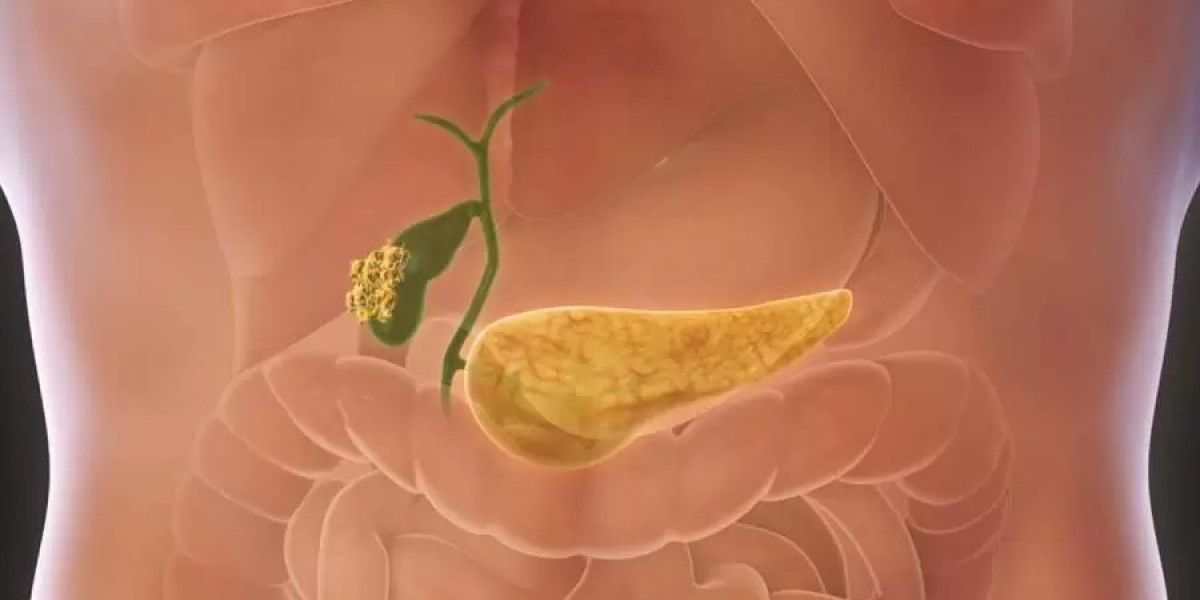Gall Bladder Cancer Treatment in Pune
Welcome to Kaizen Gastro Care, your trusted destination for comprehensive gall bladder cancer treatment in Pune, Maharashtra. We understand that receiving a cancer diagnosis can be overwhelming, but with our dedicated team of specialists and state-of-the-art facilities, you can be assured of compassionate care and effective treatment options.
At Kaizen Gastro Care, we are committed to providing the highest quality of care to our patients. Our experienced and qualified gastroenterologists and surgeons Dr. Samrat Jankar & Dr. Vikrant Kale, specialize in the diagnosis and gall bladder cancer Treatment in Pune, Maharashtra. We utilize cutting-edge technology and the latest advancements in medical science to ensure that you receive the most effective and personalized treatment possible.
If you or a loved one has been diagnosed with gall bladder cancer and are seeking treatment in Pune, contact Kaizen Gastro Care, the best gastroenterology clinic in Pune, Maharashtra, today. Our dedicated team is ready to provide you with the best possible care and support on your path to recovery. Remember, early detection and quick treatment can make a significant difference in the output.
Trust Kaizen Gastro Care for excellence in Gall Bladder Cancer treatment in Pune & Don’t hesitate to reach out to us for any inquiries or to schedule an appointment. Your health and well-being are our top priorities, and we look forward to helping you in your fight against gallbladder cancer.
What is gallbladder cancer?
Gallbladder cancer is a type of cancer that begins in the gallbladder. The gallbladder is a smallish, pear-shaped organ that stores bile, a digestive fluid produced by the liver. Bile allows you to break down fats in the food you eat. Gallbladder cancer is a relatively rare type of cancer, but it can be serious if it is not diagnosed and treated early.
What are the signs and symptoms of gallbladder cancer?
- abdominal pain, usually in the upper right portion of your abdomen
- jaundice is the yellowing of your skin and the whites of your eyes due to high levels of bilirubin from obstruction of your bile ducts
- lumpy abdomen, which occurs when your gallbladder enlarges due to blocked bile ducts or cancer spreads to your liver, and lumps are created in your upper right abdomen
- nausea and vomiting
- weight loss
- fever
- abdominal bloating
- dark urine
- Clay-colored stools
- Loss of appetite
If you have any of these symptoms, it is important to consult with gallbladder specialists in Pune, Maharashtra. Gallbladder cancer can be difficult to detect, but early diagnosis and treatment are crucial for improving the prognosis.
What causes & risk factors of gallbladder cancer?
The exact cause of gallbladder cancer is unknown, but several risk factors can improve your chances of developing the disorder. These risk factors include:
- Porcelain gallbladder: A porcelain gallbladder is a condition in which the gallbladder wall becomes thickened and calcified. Individuals with porcelain gallbladder are at a raised risk of developing gallbladder cancer.
- Gallbladder polyps: Only about 5 % of these small growths in your gallbladder are cancerous.
- Sex: Gallbladder cancer is more common in women than in men.
- Age: Gallbladder cancer is more typical in individuals over the age of 50.
- Bile duct problems: Conditions in the bile ducts that stop the flow of bile can cause it to back up into the gallbladder. This causes inflammation, which improves the risk of gallbladder cancer.
- Primary sclerosing cholangitis: Scarring that forms due to inflammation of the bile ducts improves your risk of bile duct and gallbladder cancer.
- Typhoid: Salmonella bacteria cause typhoid. Individuals with chronic, long-term infections with or without signs have a higher risk of gallbladder cancer.
- Family history: Gallbladder cancer is more common in someone who has a family history of the disease.
- Gallstones: Gallbladder cancer is more common in individuals with gallstones.
- Inflammatory bowel disease: Individuals with inflammatory bowel disease, such as Crohn’s disease or ulcerative colitis, are at an increased risk of developing gallbladder cancer.
- Obesity: Obesity is a risk factor for many kinds of cancer, including gallbladder cancer.
- Diet: A diet high in red meat and processed foods may improve your risk of developing gallbladder cancer.
Diagnosis of Gallbladder Cancer at Kaizen Gastro Care:
Gallbladder cancer is often challenging to diagnose early because it does not typically cause any symptoms until it is in a more developed stage. However, several tests can be used to diagnose gallbladder cancer, including:
- Physical exam: During a physical exam, our specialist will feel your abdomen for any lumps or tenderness. They will also ask you about your medical history and any signs you are experiencing.
- Blood tests: Blood tests can be used to check for liver function abnormalities, which may be a symptom of gallbladder cancer.
- Ultrasound: Ultrasound uses sound waves to make images of the gallbladder and surrounding organs. Ultrasound is often the first imaging test performed to look for gallbladder cancer
- CT scan: A CT scan uses X-rays to create clear images of the gallbladder and surrounding organs. A CT scan may be used to ensure the presence of a tumor and to see if the cancer has spread to other organs.
- MRI scan: An MRI scan uses magnetic fields and radio waves to create clear images of the gallbladder and surrounding organs. An MRI scan may be used to ensure the presence of a tumor and to see if the cancer has spread to other organs.
- Percutaneous transhepatic cholangiography (PTC). This is an X-ray taken after a dye is injected that shows blockages in your bile ducts or liver.
- Endoscopic retrograde cholangiopancreatography (ERCP). In this test, a lighted tube with a camera, known as an endoscope, is inserted through your mouth and advanced to your small intestine. Dye is then injected through a small tube placed in your bile duct and an X-ray is taken to look for blocked bile ducts.
- Biopsy: A biopsy is the removal of a small piece of tissue for examination under a microscope. This is the only way to definitively diagnose gallbladder cancer.
What are the stages of gallbladder cancer?
Gallbladder cancer is staged using the TNM method, which takes into account the size of the tumor (T), whether the cancer has spread to nearby lymph nodes (N), and whether the cancer has extended to distant parts of the body (M).
- Stage 0 (carcinoma in situ) is the earliest stage of gallbladder cancer. It indicates that the cancer cells are only in the inner lining of the gallbladder and have not spread to any other tissue.
- Stage I means that the tumor is small and has not spread to any other tissue.
- Stage II means that the tumor is larger or has spread to nearby connective tissue but not to any lymph nodes or other organs.
- Stage III means that the tumor has spread to nearby lymph nodes the liver or other nearby organs but not to distant parts of the body.
- Stage IV means that the cancer has spread to distant parts of the body, such as the lungs or bones.
The stage of gallbladder cancer is a crucial factor in choosing the best treatment options and the prognosis for the patient.
How is Gallbladder Cancer Treated At Kaizen Gastro Care?
Kaizen Gastro Care is the one-stop solution for Gall bladder Cancer treatment in Pune, Maharashtra. Our team will work closely with you to choose the most appropriate treatment plan based on your diagnosis and overall health. Treatment options for gallbladder cancer may include:
- Surgery: Surgery is a common treatment for gallbladder cancer. The purpose of surgery is to remove the gallbladder and any surrounding cancer cells. The type of surgery performed will depend on the stage of the cancer. For early-stage cancer, a laparoscopic cholecystectomy may be performed. This is a minimally invasive technique in which the gallbladder is removed through small incisions in the abdomen. For more developed cancer, an open cholecystectomy may be essential. This method involves a larger incision in the abdomen to remove the gallbladder and surrounding tissues.
- Radiation therapy: Radiation therapy employs high-energy rays to kill cancer cells. Radiation therapy may be used before or after surgery or as a standalone treatment for patients who are not prospects for surgery.
- Chemotherapy: Chemotherapy uses medications to kill cancer cells throughout the body. Chemotherapy may be used before or after surgery or as a standalone treatment for patients with advanced cancer.
- Targeted therapy: Targeted therapy drugs are designed to target specific molecules that are involved in the growth and survival of cancer cells. Targeted therapy drugs may be used in combination with other treatments, such as chemotherapy.
- Immunotherapy: Immunotherapy medicines help the body’s immune system fight cancer cells. Immunotherapy drugs may be used in combination with other treatments, such as chemotherapy.
- Robotic Surgery: Utilizing the state-of-the-art Da Vinci Robotic Surgical System, Dr. Jankar performs robotic cholecystectomies with enhanced precision and control. This advanced technique allows for:
- Greater maneuverability and flexibility.
- Improved visualization through high-definition 3D imaging.
- Less blood loss and a shorter hospital stay.
How to prevent gallbladder cancer?
While gall bladder cancer is not preventable, you can reduce your risk by:
- Maintaining a healthy weight.
- Eating a balanced diet with plenty of vegetables & fruits.
- Limiting the consumption of fatty foods.
- Seeking treatment for gallstones and gall bladder inflammation promptly.
- Regular check-ups and cancer screenings, especially if you have risk factors.
- Exercising regularly
- Avoid smoking
- Treat Gallstones
Why Choose Kaizen Gastro Care for Gallbladder Cancer Treatment:







